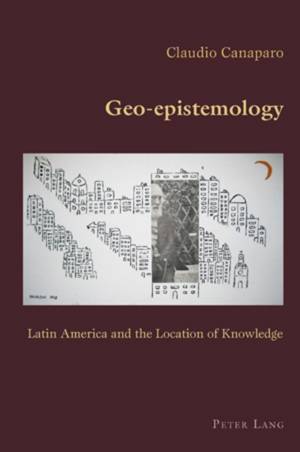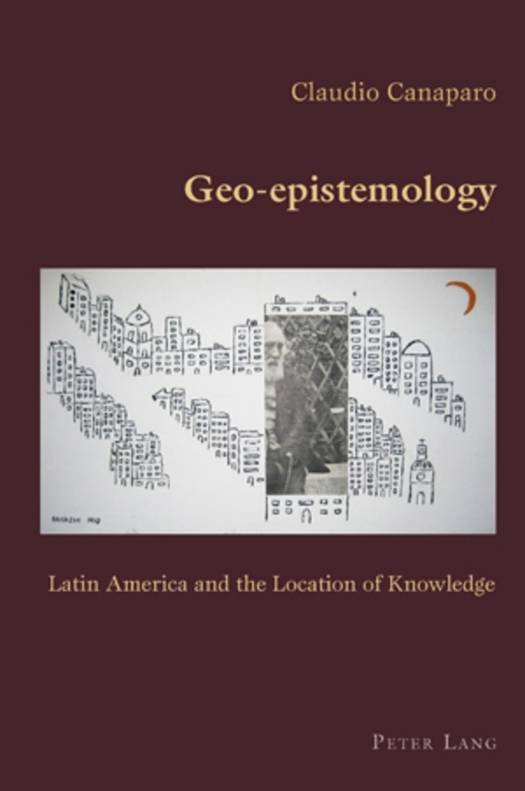
- Afhalen na 1 uur in een winkel met voorraad
- Gratis thuislevering in België vanaf € 30
- Ruim aanbod met 7 miljoen producten
- Afhalen na 1 uur in een winkel met voorraad
- Gratis thuislevering in België vanaf € 30
- Ruim aanbod met 7 miljoen producten
Zoeken
Geo-epistemology; Latin America and the Location of Knowledge
Latin America and the Location of Knowledge
Claudio Canaparo
€ 78,45
+ 156 punten
Omschrijving
This book is about the formation and development of Latin America as name, idea and concept, as well as the wider concepts of location, knowledge and the relationship between them. Latin America is not only a subject or an academic construct, it is also a perspective from which subjectivities are established, knowledge is developed and narratives are produced. This study argues that epistemology cannot exist in abstract terms, despite traditional academic arguments to the contrary. Therefore the author uses 'Latin America' to anchor his more general arguments in a particular location and calls this approach 'geo-epistemology'.
The author discusses how the specificity of a particular location can contribute to the establishment of both a method of formulating human knowledge and the boundaries of what can be known. The text explores the relationship between philosophy, geography and geometry, and analyses the notions of science, empire and colonialism. In response to the contemporary debate on 'space of thinking', the author proposes a new concept of 'reversal thinking', which leads to an examination of the roles of language and writing from an epistemic point of view.
The author discusses how the specificity of a particular location can contribute to the establishment of both a method of formulating human knowledge and the boundaries of what can be known. The text explores the relationship between philosophy, geography and geometry, and analyses the notions of science, empire and colonialism. In response to the contemporary debate on 'space of thinking', the author proposes a new concept of 'reversal thinking', which leads to an examination of the roles of language and writing from an epistemic point of view.
Specificaties
Betrokkenen
- Auteur(s):
- Uitgeverij:
Inhoud
- Aantal bladzijden:
- 290
- Taal:
- Engels
- Reeks:
- Reeksnummer:
- nr. 23
Eigenschappen
- Productcode (EAN):
- 9783039115730
- Verschijningsdatum:
- 20/11/2009
- Uitvoering:
- Paperback
- Formaat:
- Trade paperback (VS)
- Afmetingen:
- 152 mm x 229 mm
- Gewicht:
- 390 g

Alleen bij Standaard Boekhandel
+ 156 punten op je klantenkaart van Standaard Boekhandel
Beoordelingen
We publiceren alleen reviews die voldoen aan de voorwaarden voor reviews. Bekijk onze voorwaarden voor reviews.











